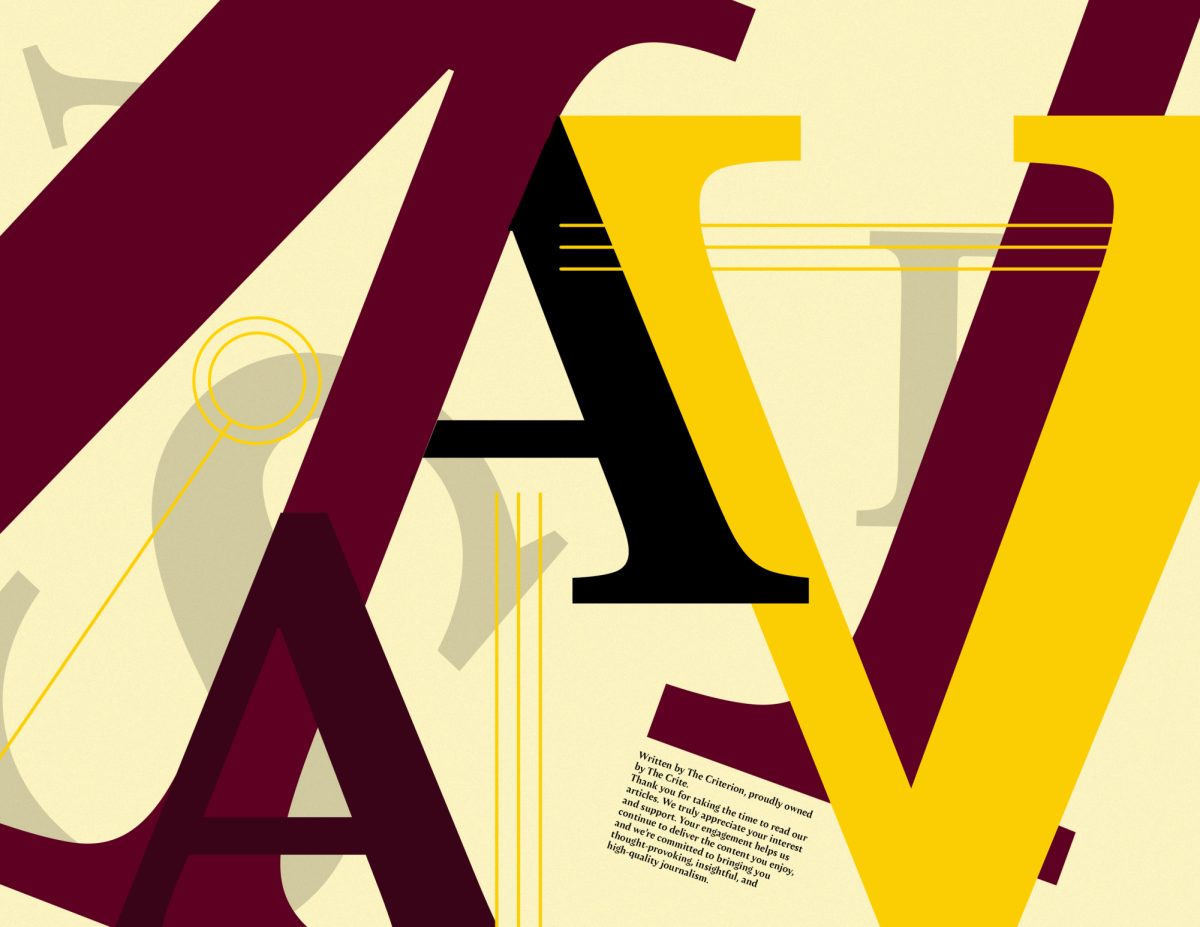There has been an issue repeatedly arising this year, and we believe it is time to address it directly. A lot of controversy has been surrounding the existence of the blotter in The Criterion with some accusing the blotter as being a shaming tool. Even some former editors have piled on, calling The Criterion an embarrassment or calling for a boycott. Such extreme reactions call for a detailed explanation of the reason to have a blotter and the intent behind it.
First, its important to note that publishing the blotter is not a new practice for The Criterion. It first appeared in the paper in 1998 and, though it has gone away from time to time, it has been a consistent part of the news section for several years.
Generally, the blotter gained little attention and stirred no controversy. It was therefore relatively surprising this year when it has been attacked multiple times by many individuals. Typically it’s the rare negative opinion pieces that stir up resentment and accusations of The Criterion hating our beloved university.
As surprising at it may be, the controversy demonstrates a clear need to provide clarity. First and foremost, we wish to dispel the notion we have anything but love for Colorado Mesa University (CMU). This university is a great place to gain an education and it repeatedly a student-first mentality.
We’re always looking for, and consistently find, positive topics about every aspect of CMU. The news, art and life, sports and opinions sections are full of articles celebrating this amazing school.
So, if we love CMU so much, why do we publish the blotter, which can show students getting in legal trouble for things as low-level as minor in possession (MIP)? While some may conjure up the image of evil trolls sitting in the newsroom cackling about shaming fellow Mavericks, it’s really only about one thing: the duty to report.
Newspapers have a blotter to report on police activity within the community they serve. The Criterion is a newspaper and therefore follows this practice.
This can serve as a valuable tool for understanding safety. For instance, if sexual assaults were happening after dark in the parking garage, it would be very beneficial for that information to appear in the blotter. Potential victims could utilize the information to avoid an unsafe situation.
Thankfully, such things are not a common occurrence at CMU, which is a relatively safe place to attend. However, no place is perfectly safe, as demonstrated when The Criterion reported on a former Sodexo employee that had sent sexually explicit threats to a young woman two years ago.
MIPs are certainly not on the same level of severity as sexual assault and The Criterion would never dream of insinuating such a ridiculous notion. However, hopefully it is now understood that it is important to report on serious crimes.
In the case of news, though, either all crime or none of it should be reported. It is not ethical or fair to draw an arbitrary line at reportable versus non-reportable violations of the law. Doing so would mean reporting would turn news reporting into a subjective rather than objective process, which would remove credibility.
It would be irresponsible of editors to make a decision that discredits The Criterion as a news source, and making such a decision would be grounds for removal. Even the editor in chief would not be immune to such consequences.
Some may argue that names should be omitted for lesser crimes like MIPs. After all, some other university newspaper blotters do not include names unless the crime is severe. However, choosing a level at which names should be included is just as unethical and unfair as
choosing which crimes to report and which to ignore.
No matter where the line would be drawn, whoever fell just above it would feel unjustly treated, and they would be right. Reporting all names, regardless of severity is the only way to ensure equal, ethical and consistent treatment of all parties.
Previously, efforts to explain the existence of the blotter have met with misinterpretation and subsequently misrepresentation of our intent. We have pointed out that reacting and commenting on the blotter makes it trend, thus adding to the exposure of the individuals listed in the article.
This was not an attempt to cast blame on readers. It was merely an explanation of how trending works in an attempt to prevent those who were concerned about public shaming from accidentally giving more public attention to individuals experiencing legal difficulties.
We have also previously pointed out the fact that MIPs stand out so much is because of the small amount of crime at CMU. We didn’t mean the intent of the blotter is for it to act as a positive statement of safety at CMU. The lack of consistent serious crime to report, thus the intuitive communication of safety, is a pleasant byproduct, but that is not the purpose of the blotter. The purpose of the blotter, as previously stated, is simply to report all CMU related crime regardless of severity.
We understand that some may always view the blotter as a negative and unnecessary aspect of the paper. However, it is our earnest hope that others may now understand why it is a necessary duty of any paper. We will never celebrate legal difficulties faced by our fellow Mavericks, but we will always do our duty.
As with all newspapers, there are positive and negative articles; usually in the opinions section. There’s good news and not so good news. At The Criterion, we celebrate the good and tolerate the bad. We invite our readers to do the same.








